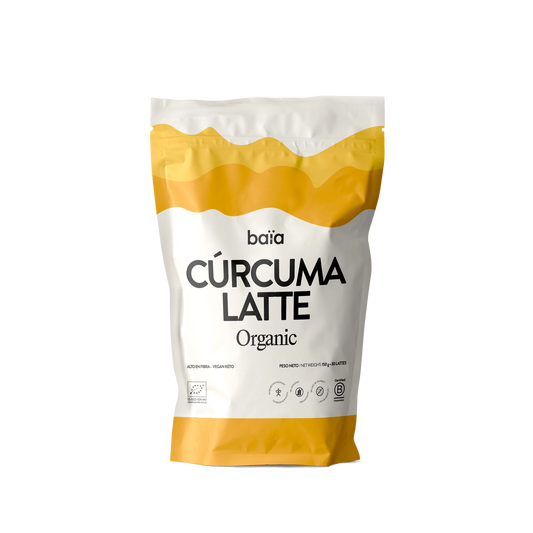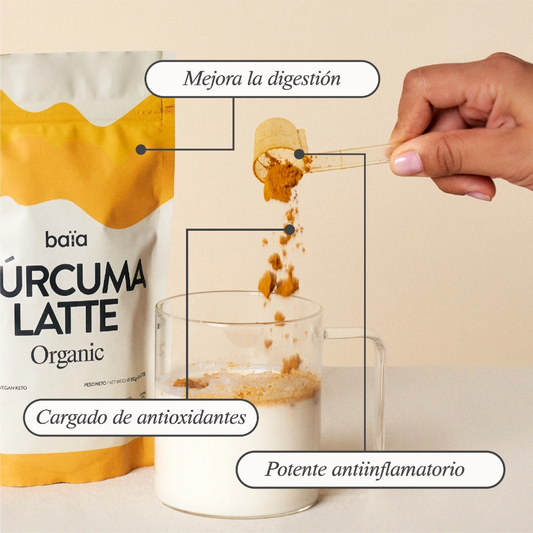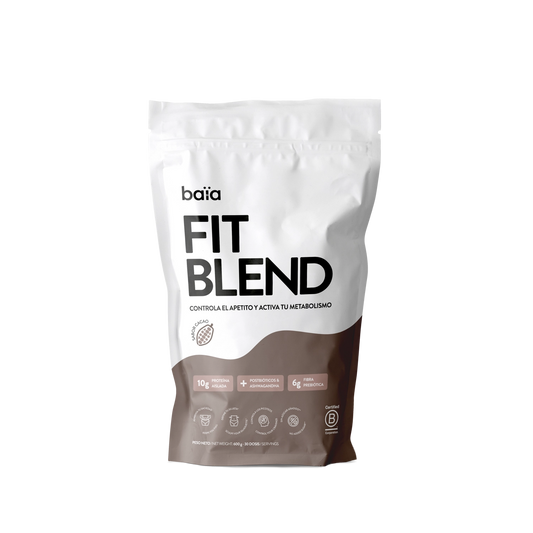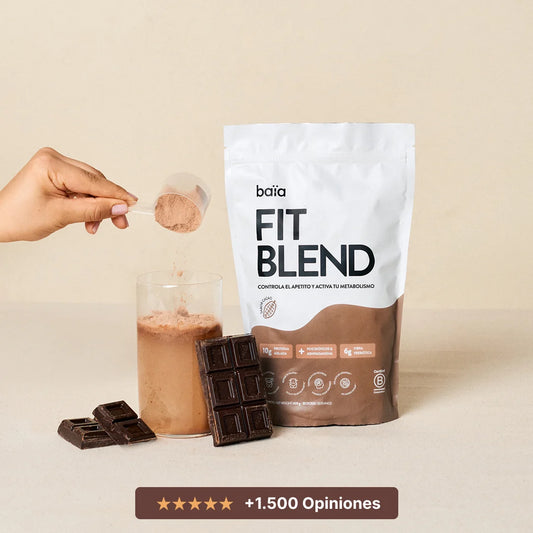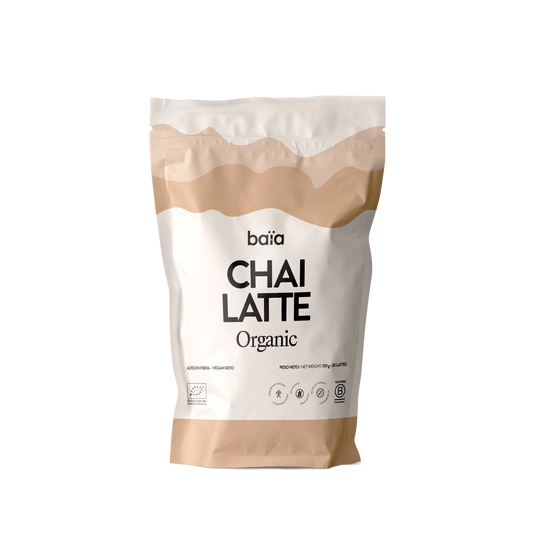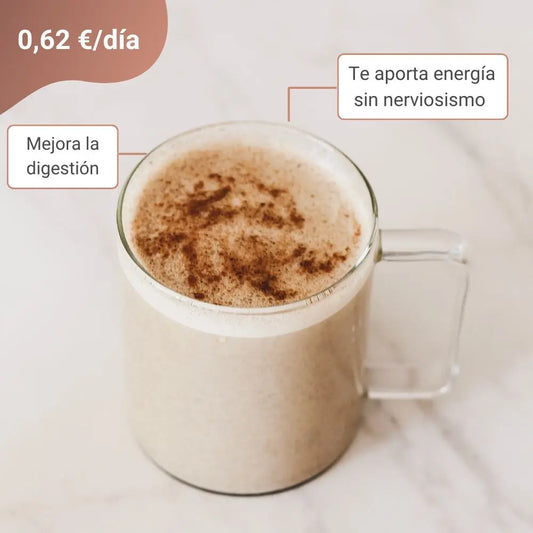Is there a relationship between the bloating abdominal and weight gain?
per Baia Food en Dec 30, 2024
Tabla de contenidos
The bloating Abdominal pain and weight gain are problems that affect many people, generating discomfort and concern about their impact on the well-being general. They are often related and understanding their causes in order to solve them can markr the difference in your quality of life. Below, we explore the connections between the two phenomena, the most common causes, and how to address them to improve your health.
How the bloating abdominal pain may be related to weight gain
It is common to relate the bloating abdominal pain with weight gain and although they do not always go hand in hand, they may have a common origin. bloating It occurs when there is a buildup of gas, fluids, and abdominal distension, which causes a feeling of heaviness and discomfort. Although it doesn't necessarily imply an increase in body fat, it can affect the scale due to fluid retention.
On the other hand, the bloating Chronic obesity can be due to certain habits that lead to long-term weight gain. For example, poor digestion or an unbalanced microbiota can influence the body's ability to absorb nutrients, impacting metabolism and favoring the storage of fats.
Common causes of bloating abdominal and weight gain
There are various causes that can generate both bloating abdominal pain and weight gain. Here we highlight some of the most common:
- Diet high in sugars and ultra-processed foodsThese foods are packed with glutamate, trans fats, refined sugars, colorings, and sweeteners. They can cause intestinal inflammation and fluid retention, worsening the condition. bloating and by negatively altering the microbiota, facilitate weight gain.
- Imbalance in the intestinal microbiota: caused by a diet low in fiber and low in nutrient density, with excess ultra-processed foods and sugars (as we just mentioned). Also, excessive use of medications and antibiotics, habits like smoking or alcohol, and a sedentary lifestyle. All of this can disrupt digestion, causing gas, bloating, and metabolic problems that lead to increased fat storage.
- Food intolerancesIn Spain, up to 10% of the population has some level of gluten intolerance and between 20 and 40% have some degree of lactose intolerance. bloating It is one of the most common symptoms of food intolerance, due to the accumulation of gas resulting from the fermentation of undigested foods. Furthermore, when you consume foods to which you are intolerant, your body generates a low-grade inflammatory response, which is linked to insulin resistance, hindering the efficient use of glucose and promoting its storage as fat.
- Chronic stress: The function of stress is to prepare your body for a fight or flight situation. To do this, try to ensure a adequate blood flow to vital organs. Also increases plasma volume, improving the transport of oxygen and nutrients to the tissues and maintaining electrolyte balance. It does all this by retaining sodium and water. This is healthy when this happens occasionally, but chronic stress can also lead to prolonged fluid retention. This can cause a feeling of heaviness and fluid retention in the abdominal area. Furthermore, chronic stress affects intestinal motility, which also contributes to bloating.
- Lack of exerciseMuscle movement is necessary for the lymphatic system to function. This system is responsible for collecting excess fluid from the tissues and returning it to the bloodstream. Movement also Help to maintain an adequate balance between intracellular and extracellular fluids, also affecting fluid retention and bloating abdominal.
How to relieve the bloating abdominal and control weight gain
As we have seen, the weight gain associated with bloating It is more related to fluid retention. Although the causes of hydration can also contribute to a small and gradual tendency to accumulate fat. To relieve bloating To maintain abdominal fat and a healthy weight, it's essential to adopt habits that promote optimal digestion and metabolic balance. Here are some practical tips:
- Opt for a diet rich in fiber: Foods such as vegetables, tubers, fruits, nuts, seeds and whole grains Helpto improve digestion and prevent constipation, a common cause of bloating abdominal.
- Incorporates probiotics and prebiotics: Fermented products such as yogurt, kefir, fermented pickles or foods rich in soluble fiber, such as garlic, onions, leeks, asparagus, and artichokes, nourish the intestinal microbiota and promote healthy digestion. You can also incorporate our product Microbiotic Creamer, with probiotics, prebiotics and a medicinal mushroom, which together will improve your intestinal transit, combats bloating and improves your digestion.
- Stay hydrated: Drink enough water Help to eliminate toxins and reduce fluid retention. When the body is dehydrated, it responds by retaining more fluid, which can lead to a feeling of bloating in the abdomen and other parts of the body. This occurs because the body tends to "store" water when it perceives fluid levels are low, which in turn can cause fluid to accumulate in the tissues.
- Exercise regularly: Activities such as walking, swimming or practicing yoga not only benefit your general health, but are also essential for regulating lymphatic circulation and prevent bloating abdominal and the fluid retentionStaying active is an effective way to support fluid balance in your body and improve your well-being digestive. It also improves your digestion.
- Control stress: Techniques such as meditation and deep breathing can reduce cortisol levels and, with it, problems related to bloating and fluid retention.
- Avoid processed foods: to enjoy a balanced microbiota and good Gut health which will have a positive impact on fluid balance and the proper functioning of your metabolism.
The bloating Abdominal pain and weight gain are interconnected issues that require comprehensive care. Adopting healthy habits, improving your diet, and reducing stress factors are key to preventing and alleviating these problems. If you notice that bloating persists or is accompanied by other symptoms, consult a healthcare professional to identify possible intolerances or intestinal imbalances.
Remember that in Baïa Food we offer products naturalis, as fiber-rich and probiotic supplements, designed to support your well-being digestive and Helphelp you feel better in your daily life.













